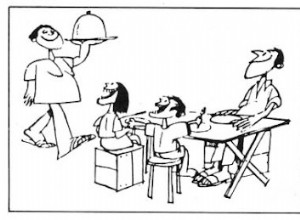Question 01 - ENEM PPL 2010 - The photo reveals a moment in the Vietnam War (1965-1975), a military conflict whose journalistic coverage used, in large-scale photography and television. One of the roles played by the media in covering this war, as evidenced by the photo, was a) to demonstrate the cu




